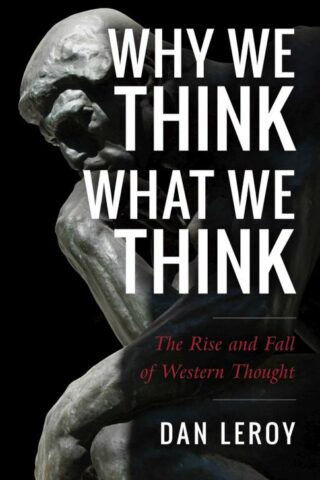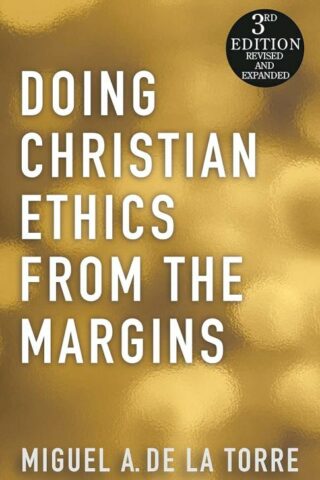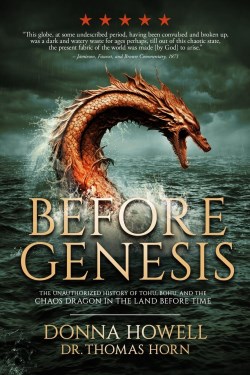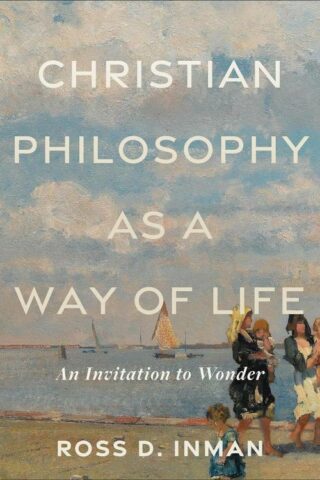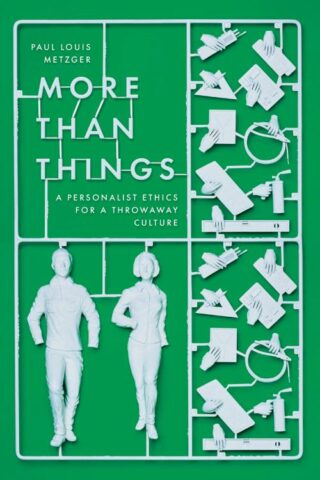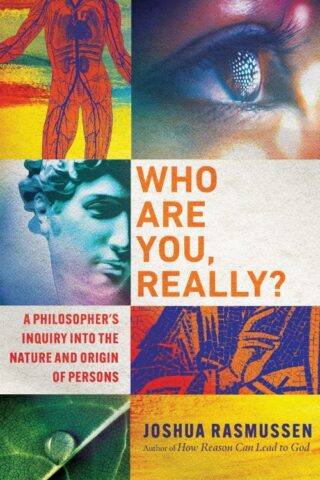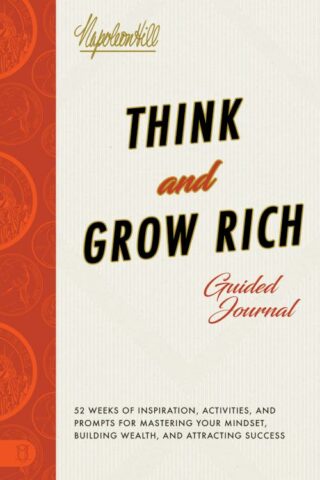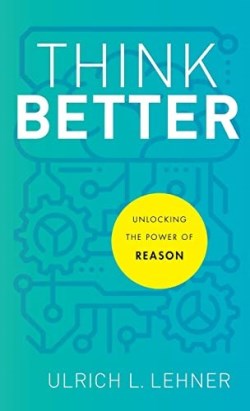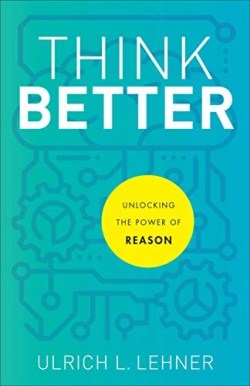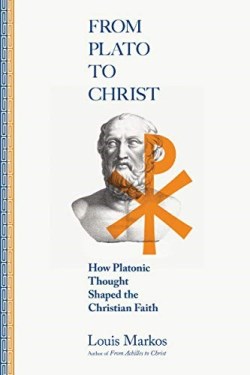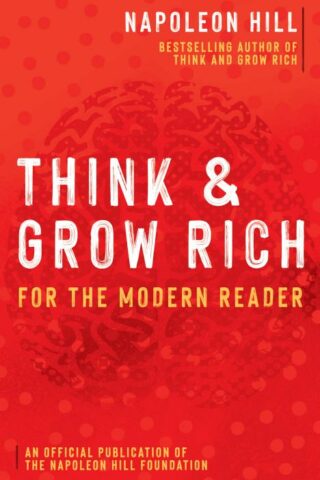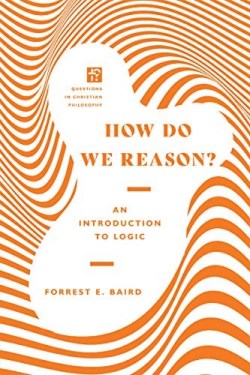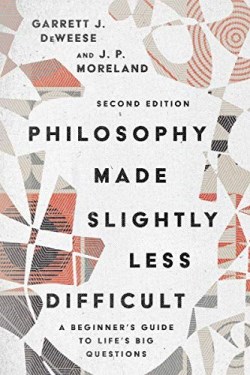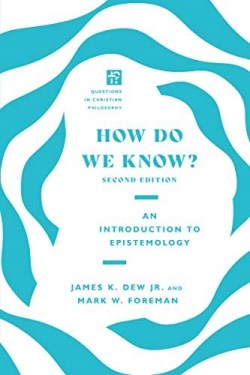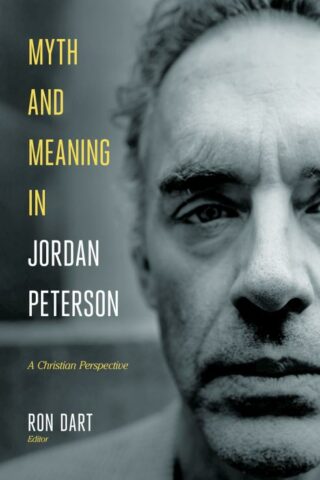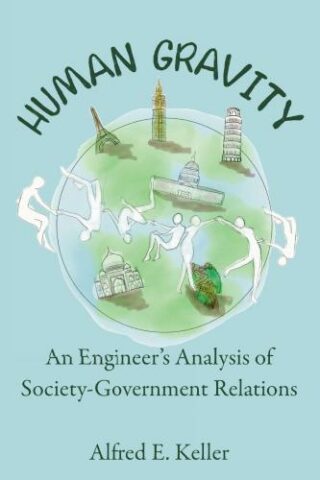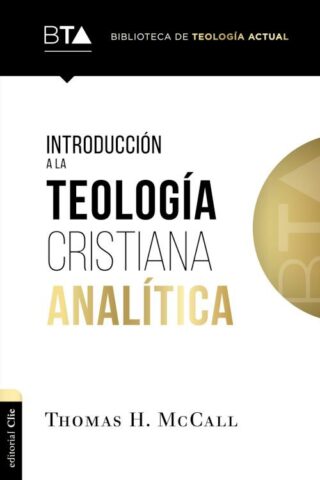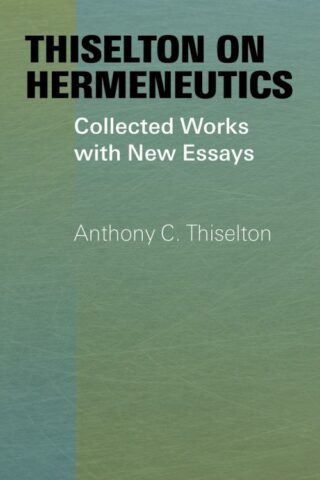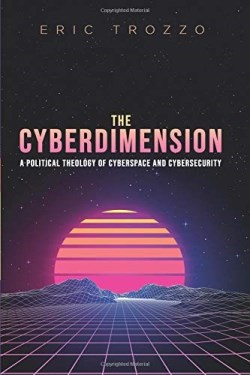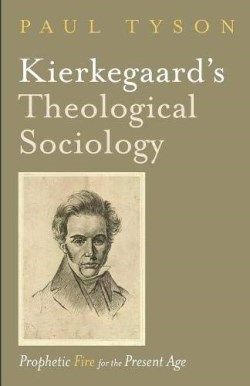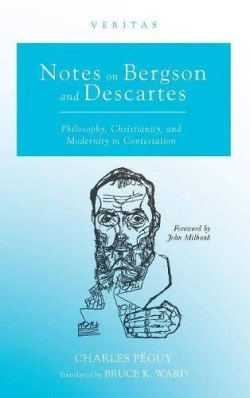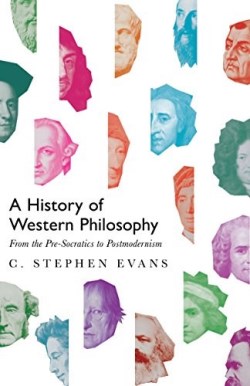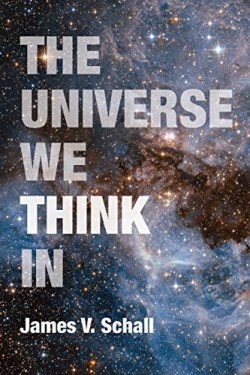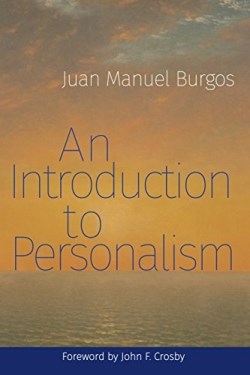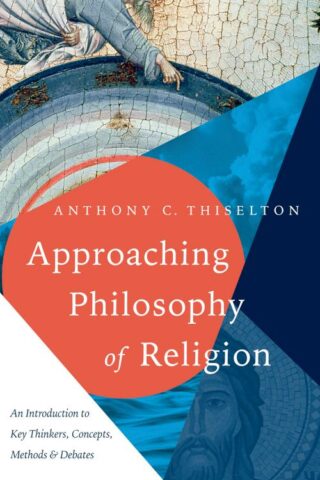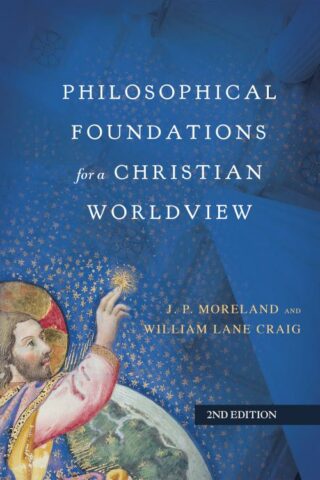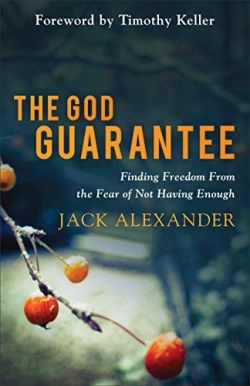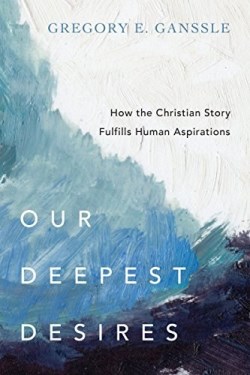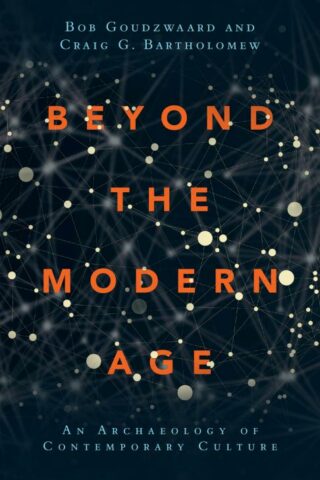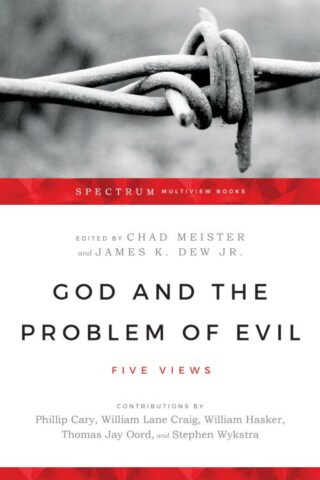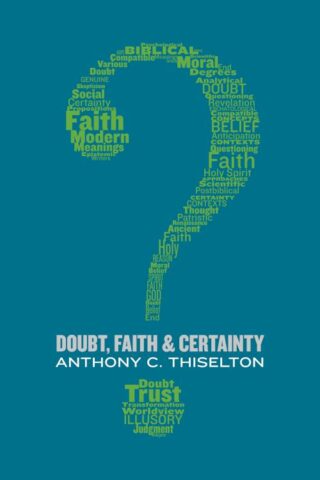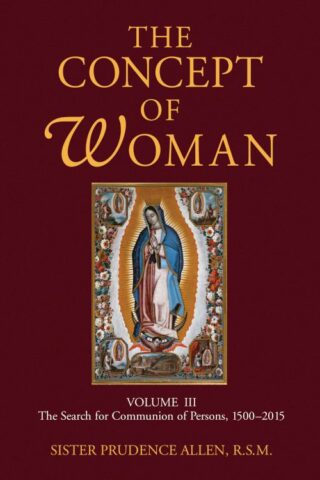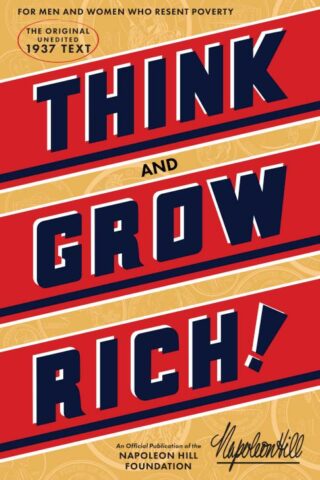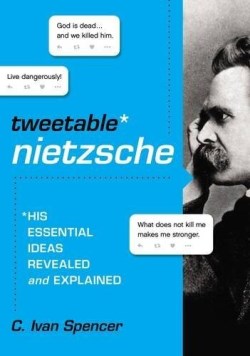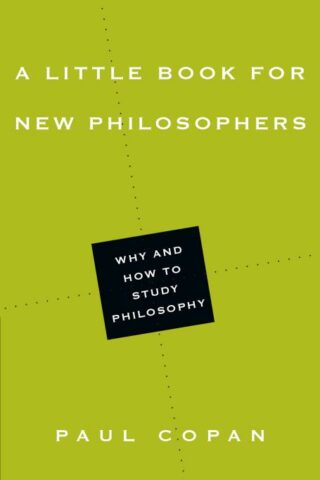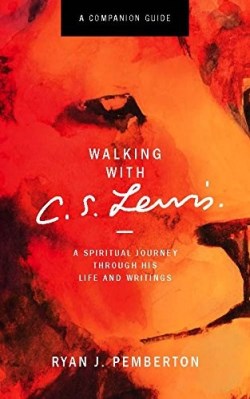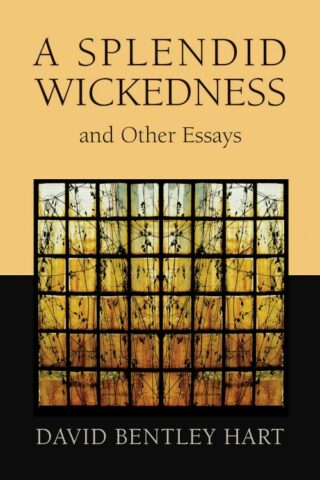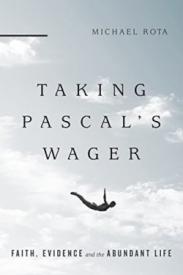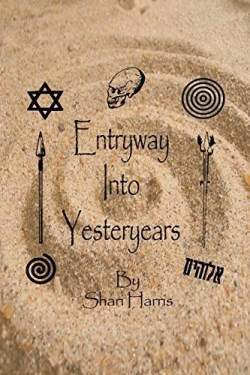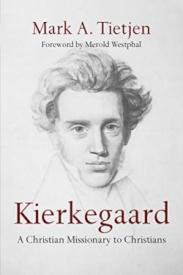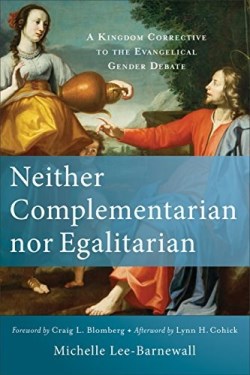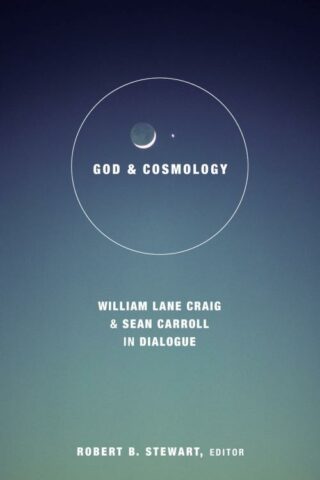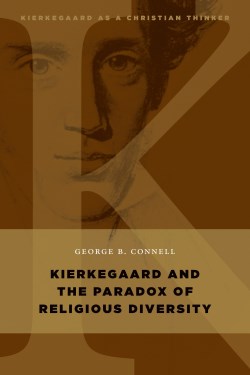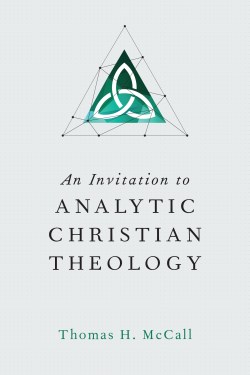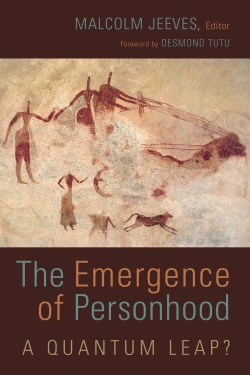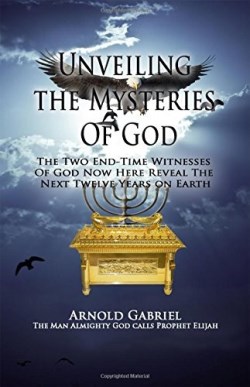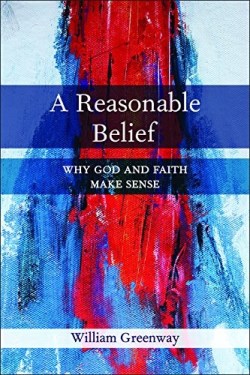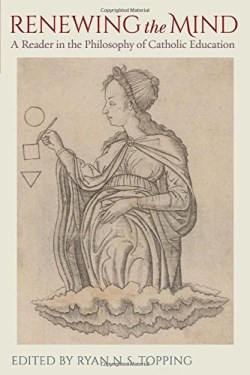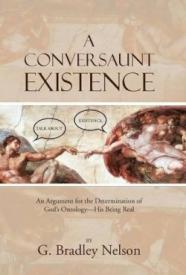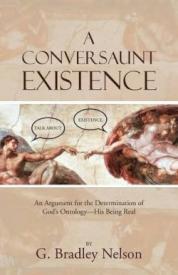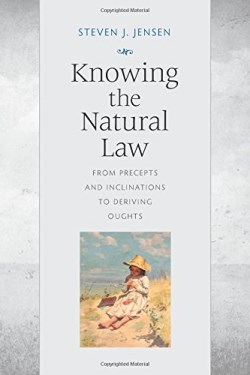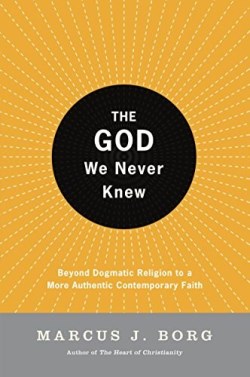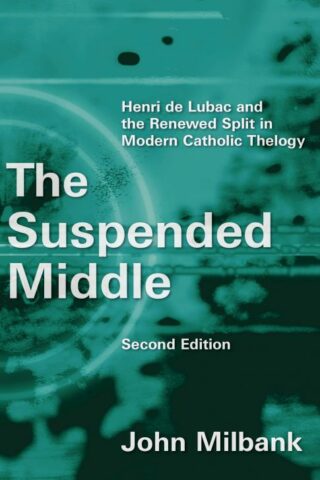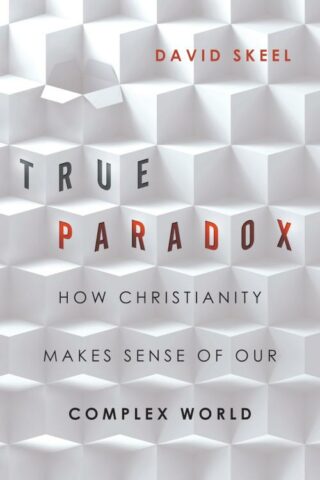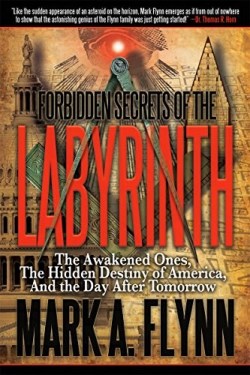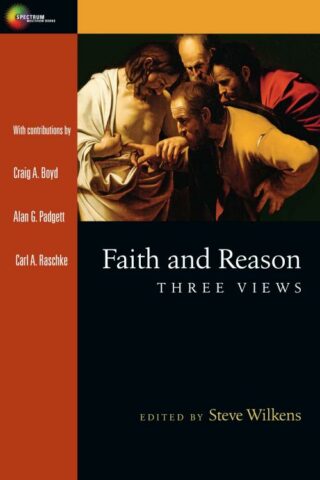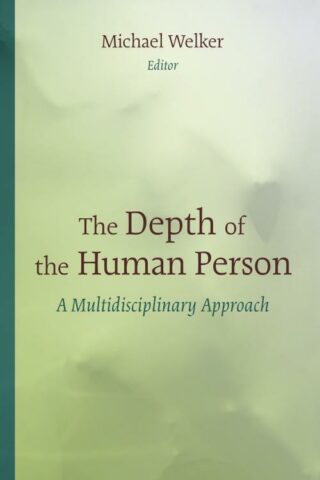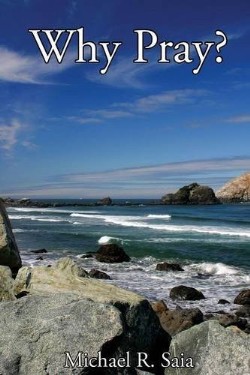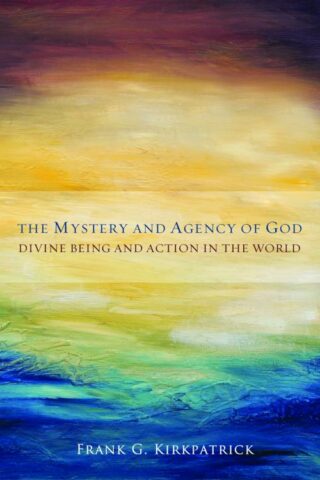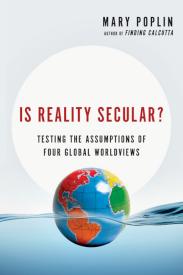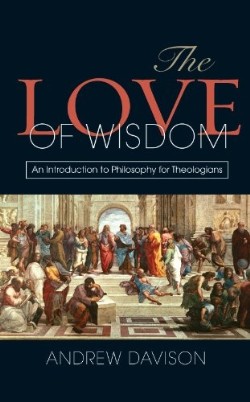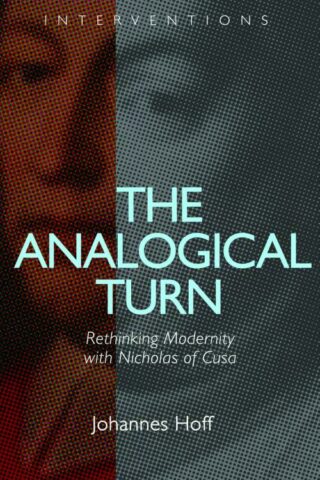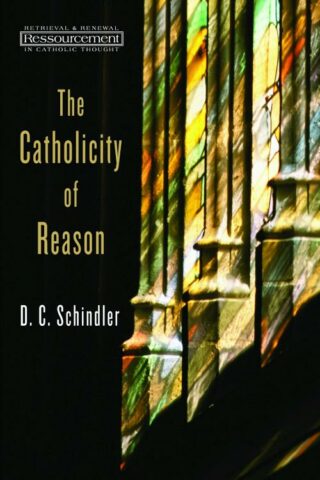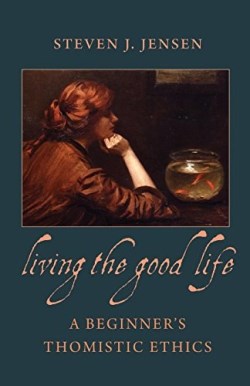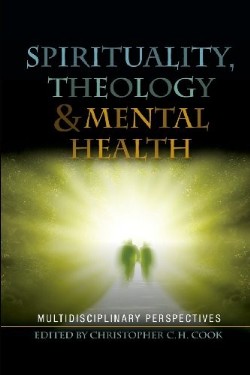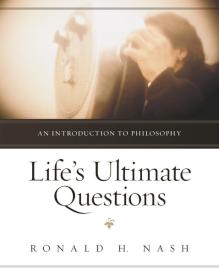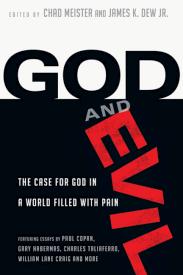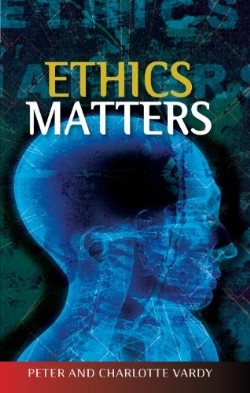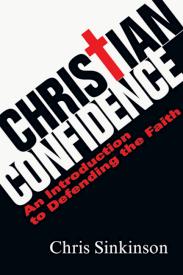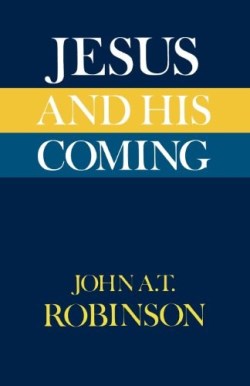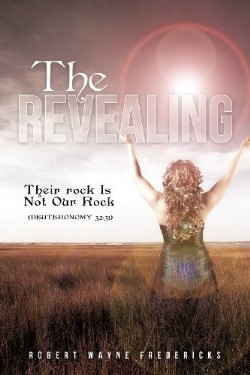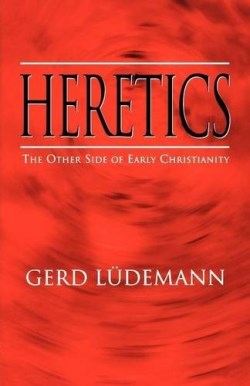Philosophy
Showing 1–75 of 230 results
-
Why We Think What We Think
$19.95Add to cartWe’re all starting to hear people ask how the world has gotten to be the way it is. Grafted onto the usual complaints about why people are so greedy, self-absorbed, and callous toward one another are new expressions of frustration about even more fundamental concerns. Why can’t we agree on concepts that used to be basic common sense? Why does our very language now seem to be a minefield that only the most wily and tactical (or cynical) among us can navigate?
The only way to understand fully how we have arrived at this state – and what, if anything, we might be able to do about it – is to embark on a journey back in time to see where we went off the rails. With candor and occasional humor, Dan LeRoy tells the sweeping story of Western thought from its beginnings to the present, revealing the souls and idiosyncrasies of its greatest thinkers. Through stirring vignettes, he tells the real story of how our customs and thought patterns developed and then relates it to our current moment of rupture.
In pages that sometimes read like an Indiana Jones adventure, LeRoy explains the detour that philosophy took nearly a thousand years ago that has led Western society to its current, dire situation. With sharp pen and clear eye, he reveals:
*The roots of classical philosophy, including empiricism (Ready to wade into the water?)
*How views on ethics and morality began to take shape even before Christ
*The three ways to attain happiness, according to the Big Three philosophers
*Four splinter groups and how their philosophies impact us today
*The enduring teachings of Sts. Augustine and Aquinas, among many othersYou will find out about amazing discoveries during the early days of rationalism, from mathematical equations to intervals between music notes, and how this universal ratio applied to another scientific revelation. Along the way, you will see the relevance of famous (and infamous) beliefs, including the Realm of Forms, the Four Causes, and Pascal’s Wager as well as dualism, humanism, materialism, and pantheism. Additionally, you will learn about how these ideologies provided the basis for modern-day politics, education, and belief in the transcendent, and the bridge between ancient philosophy and Christianity.
LeRoy unveils the ways in which the beliefs our society has largely abandoned still affect our everyday lives. Knowing why we think what we think is the only way to recover the ideas – many of them Christian in origin – tha
-
Doing Christian Ethics From The Margins (Revised)
$45.00Add to cartIn this revised edition of an established classroom text, De La Torre furthers his argument that the pain and suffering of people who have been marginalized continues to inform a perspective that holds a greater grasp of reality than those who are more privileged by power and profit. He continues the method of theory and case studies from earlier editions, updating the cases for the 3rd edition. In Part IV, the chapter entitled “Private Property” that appeared in the 2nd edition has been removed in the 3rd edition. Also in that part, the chapters on affirmative action and sexism have been re-ordered so that the chapter entitled “Affirmative Action” is the last chapter before the conclusion. In the 3rd edition, there is a fuller conclusion than the 2nd edition’s epilogue.
-
Before Genesis : The Unauthorized History Of Tohu, Bohu, And The Chaos Drag
$21.95Add to cartBy far, the leading interpretation of today’s Church regarding the age of this planet, Earth, takes us back to approximately 4004 BC: the year believed to be Adam’s creation.
However, just as Galileo challenged the Church to accept that Earth circles the sun (not the other way around), it is far beyond time for traditional interpretations regarding our planet’s earliest ages-and what occurred between God and Lucifer during those eras-to be updated in light of what we know today. Once this is done, the evidence overwhelmingly stacks in favor of a harmony between science and theology.
Dr. Thomas Horn and his research assistant, Donna Howell, have waded through thousands of scholarly journals, books, articles, videos, and other media to present an astounding work like none other in this field of study that brings a fresh, modern perspective to contemporary sciences, the age-old question of what God’s first enemy did to Earth in the days it was “without form, and void” (Genesis 1:2), and what may have really happened in the days of Adam.
In Before Genesis, you will learn:
– The basics of the debate raging between the “Old Earth” and “Young Earth” Creationist groups and the often-overlooked answers to these issues straight from the Word of God;
– How ancient archeological sites such as Gobekli Tepe, Puerta de Hayu Marca (aka, “the Doorway of the Serpent”), Tiahuanaco, Baalbek, Catalhoyuk, and Mehgarh-alongside bizarre, out-of-place-artifact (OOPArt) findings-point to an intelligent race of beings on Earth alive before the time of Adam and under Lucifer’s fallen influence;
– What Earth was like during the “without form, and void” era of Genesis 1:2, who the key players were at that time, and what they were up to;
– Lucifer’s biblically recognized role as Earth’s “serpentine king”; what the biblical prophets said about this fallen “cherub that covereth”; who the perpetrator in Eden really was; and the origin of the “great lizards” we’ve come to know as dinosaurs;
– And, finally, for the first time: the conclusion to the events of Genesis that shockingly merges all contributing voices (Young and Old Creationist groups, as well as science) into one balanced and agreeable climax.
-
Christian Philosophy As A Way Of Life
$23.99Add to cartPhilosophy is often seen as anything but practically relevant to everyday life. In this brief, accessible introduction, Ross Inman explores four hidden assumptions that lurk behind questions involving philosophy’s relevance. He shows that philosophy is one of most practical subjects of study, for it satisfies our deep human need to make sense of it all.
This book recovers a more classical vision of Christian philosophy as an entire way of life. Inman shows that wonder is the distinctively human posture that drives and sustains the examined life and makes a compelling case that philosophy is valuable, practical, and significant for every aspect of Christian life and ministry. Living philosophically as a Christian enables us to be properly attuned to what is true and good in Christ and to orient our lives to the highest goals worth pursuing.
This is an ideal introductory book for students of philosophy, Christian thought, and worldview studies. It will also work well in classical school, high school, and homeschool contexts.
-
More Than Things
$48.00Add to cartWe live in a culture of commodification.
People are too often defined by what they do or own; they’re treated as means to an end or cogs in a machine. What goes missing is a deep sense of personhood–the belief that all humans are unique subjects with inherent worth and the right to self-determination in authentic communion with others.
In a world dominated by things, Paul Louis Metzger argues, we must work hard to account for one another’s personhood. We need to cultivate relational structures that honor every human’s dignity in vital interpersonal community. The theological and philosophical framework known as personalism can help guide us toward such a culture. Drawing from a wide range of thought leaders, including Martin Luther King Jr. and Pope John Paul II, Metzger presents a personalist moral vision founded on the Christian ideals of faith, hope, and love. He demonstrates how this moral compass can help us navigate a pluralistic world by applying it to a variety of pressing ethical issues, including abortion, genetic engineering, immigration, drone warfare, and more.
Ultimately human personhood begins with the personal, triune God, who invites us to live more fully as human beings. When we refuse to reduce our fellow humans–and ourselves–to mere abstractions or objects, we follow the example of Jesus in honoring the value of every person and of creaturely life as a whole.
-
Who Are You Really
$30.00Add to cartWhat does it mean to be human? What is a person? Where did we come from?
Many answers have been offered throughout history in response to these perennial questions, including those from biological, anthropological, sociological, political, and theological approaches. And yet the questions remain.
Philosopher Joshua Rasmussen offers his own step-by-step examination into the fundamental nature and ultimate origin of persons. Using accessible language and clear logic, he argues that the answer to the question of what it means to be a person sheds light not only on our own nature but also on the existence of the one who gave us life.
-
Think And Grow Rich Guided Journal
$27.95Add to cartA GUIDED JOURNAL FOR ESTABLISHING EFFECTIVE MENTAL HABITS
Napoleon Hill’s book Think and Grow Rich has sold more than 80 million copies since it was published in 1937. His principles and insights have been tested and proven successful by millions of people worldwide. With this companion journal, you will discover a new way to implement the 17 success fundamentals that form Hill’s philosophy of personal achievement.
Each success principle is deconstructed into its component attributes so that you can focus on building one new habit each week. Action prompts, journaling activities, worksheets, and bonus resources will enable both new and longtime practitioners of Hill’s Science of Personal Achievement to attain heightened levels of self-mastery and accomplish their biggest goals.
Contents include:
*Journaling prompts for cultivating self-awareness, faith, and purpose
*Guidance for turning fear and failure into stepping-stones to success
*Activities for strengthening personal initiative, decisiveness, and accurate thinking
*Worksheets for enhancing concentration, imagination, and a positive mindset
*Templates for budgeting time and moneyWith this powerful, practical new format, anyone can apply the 17 principles of individual achievement in their own life and enjoy the success, happiness, and peace of mind that result when you Think and Grow Rich!
-
Think Better : Unlocking The Power Of Reason
$21.99Add to cartIn a world dominated by half-truths, illogic, and intellectual laziness, Think Better helps readers understand what reason is and how to use it well.Reason is a powerful tool not only for finding our way in an increasingly complex world but also for growing intellectually and emotionally. This short, accessible volume unlocks the dynamics of human reason, helping readers to think critically and to use reason confidently to solve problems. It enables readers to think more clearly and precisely about the world and tackles a number of profound philosophical questions without getting bogged down with jargon. Topics include knowledge, identity, leadership, creativity, and empathy.Written in an accessible style that integrates philosophy, illustrations, personal anecdotes, and statistical data, this book is well suited for use in undergraduate, classical school, and home school contexts. It is an invaluable guide for anyone interested in gaining better reasoning skills and a more rational approach to life.
-
From Plato To Christ
$32.00Add to cartWhat does Plato have to do with the Christian faith?
Quite a bit, it turns out. In ways that might surprise us, Christians throughout the history of the church and even today have inherited aspects of the ancient Greek philosophy of Plato, who was both Socrates’s student and Aristotle’s teacher. To help us understand the influence of Platonic thought on the Christian faith, Louis Markos offers careful readings of some of Plato’s best-known texts and then traces the ways that his work shaped the faith of some of Christianity’s most beloved theologians, including Gregory of Nyssa, Augustine, Dante, and C. S. Lewis. With Markos’s guidance, readers can ascend to a true understanding of Plato’s influence on the faith.
-
Think And Grow Rich For The Modern Reader
$12.95Add to cartThis book provides a synopsis of the original 1937 text of Hill’s masterpiece, Think and Grow Rich. It extracts the key principles, instructions, and examples so that the modern professional, regardless of how busy he or she is, can benefit from the timeless wisdom found in Hill’s book.
To receive the greatest possible benefit from its wisdom, read no more than one chapter per day, allowing the space and time to fully digest its insights and to enable your imaginative faculties to act on the thought impulses generated thereby. You will also undoubtedly find your progress magnified by working through this content in the setting of a book club or study group, wherein the mastermind principle can be applied to reach higher-level orders of thinking. Regardless of your approach, when you commit yourself to practicing the steps outlined in this book, you will surely open yourself up to great personal growth and momentum toward achieving your dreams.
“Anything the mind can conceive and believe, it can achieve.”
Within this one line is distilled a success formula so simple that anyone can apply it–and yet so demanding that only a minority of the population ever fully lives it out. Upon it was built a success philosophy that explains how human desires can be translated into material reality, a framework that rests upon the power of thoughts to seek expression in physical form. Through this singular concept, the world’s wealthiest and most successful individuals–rich in money, relationships, power, peace of mind, and social standing–have built and maintained their prosperity. It is the foundational principle of Napoleon Hill’s Science of Success program, an achievement philosophy that effectively helped end the Great Depression and that has since made more millionaires, cultural icons, and thought leaders than any other.
Hill was born in 1883 in a one-room cabin on the Pound River in Wise County, Virginia. He began his writing career at age thirteen as a mountain reporter for small-town newspapers. In 1908, as a young special investigator for a nationally known business magazine, he was sent to interview the great steel magnate Andrew Carnegie. During that interview, Carnegie shared the secrets that had enabled him to acquire hundreds of millions of dollars–a magic law of the human mind, a little-known psychological principle that was amazing in its power.
Believing that this magic formula should be shared with those who did not have the time or
-
How Do We Reason
$26.00Add to cartHow do we think? What does a faithful use of logic look like?
Without even pausing to think about it, we exercise our capacity for rational thought. But how exactly does logic work? What makes some arguments valid and others not? In this Questions in Christian Philosophy volume, philosopher Forrest Baird offers an introduction to logic. He considers the basic building blocks of human reason, including types of arguments, fallacies, syllogisms, symbols, and proofs, all of which are demonstrated with exercises for students throughout. In addition, he reflects on the relationship between the use of reason and the Christian faith. With this academic but accessible primer, readers will be introduced to the basics of logic–and encouraged to reason better.
-
Philosophy Made Slightly Less Difficult Second Edition
$26.00Add to cartPhilosophy is for everyone. We think philosophically whenever we ask life’s big questions:
*What is real?
*How do we know what we know?
*What is the right thing to do?
*What does it mean to be human?
*How should we view science and its claims?
*Why should we believe that God exists?Philosophy is thinking critically about questions that matter. But many people find philosophy intimidating, so they never discover how invaluable it can be in engaging ideas, culture, and even their faith. Garrett DeWeese and J. P. Moreland understand these challenges, and in this book they apply their decades of teaching experience to help to make philosophy a little less difficult. Using straightforward language with plenty of everyday examples, they explain the basics needed to understand philosophical concepts–including logic, metaphysics, epistemology, ethics, philosophical anthropology, and philosophy of science. This second edition includes new chapters on aesthetics and philosophy of religion, as well as updated content on some current issues in philosophy. Ultimately, DeWeese and Moreland argue, developing a philosophically informed worldview is absolutely critical for Christians and for the future of the church. Students, pastors, campus workers, and ordinary Christians will all benefit from this user-friendly guide.
-
How Do We Know
$24.00Add to cartWhat does it mean to know something? Epistemology, the study of knowledge, can often seem like a daunting subject. And yet few topics are more basic to human life. In this primer on epistemology, now in a second edition, James Dew and Mark Foreman provide an accessible entry into one of the most important disciplines within contemporary philosophy.
What does it mean to know something? Can we have confidence in our knowledge? Epistemology, the study of knowledge, can often seem like a daunting subject. And yet few topics are more basic to human life. We are inquisitive creatures by nature, and the unending quest for truth leads us to raise difficult questions about the quest itself. What are the conditions, sources, and limits of our knowledge? Do our beliefs need to be rationally justified? Can we have certainty? In this primer on epistemology, James Dew and Mark Foreman guide readers through this discipline in philosophy. This second edition has been expanded with new material and now serves as the first volume in IVP’s Questions in Christian Philosophy series. By asking basic questions and using clear, jargon-free language, they provide an entry into one of the most important issues in contemporary philosophy.
-
Myth And Meaning In Jordan Peterson
$18.99Add to cartPopular philosopher Jordan Peterson has captured the imagination of Western world.
For some, Peterson represents all that is wrong with patriarchal culture; for others, he is the Canadian academic prophet who has come to save civilization from dizzying confusion. Regardless of how one feels about him, his influence in North America–and beyond–is difficult to deny.
While the “Peterson phenomenon” has motivated numerous articles and responses, much of what has been written is either excessively fawning or overly critical. Little has been produced that explores Peterson’s thought–especially his immensely popular 12 Rules for Life–within the context of his overall context and scholarly output. How is one to understand the ascendency of Jordan Peterson and why he’s become so popular? Does his earlier Maps of Meaning shed light on how one might understand his worldwide bestseller, 12 Rules for Life?In Myth and Meaning in Jordan Peterson, scholars across various disciplines explore various aspects of Jordan Peterson’s thought from a Christian perspective. Both critical and charitable, sober-minded and generous, this collection of ten essays is a key resource for those looking to faithfully engage with Jordan Peterson’s thought.
-
Human Gravity : An Engineer’s Analysis Of Society-Government Relations
$13.99Add to cartHumanity lives inside 4 unyielding constraints, the speed of light, conservation of mass-energy, inefficiency in conversion of heat to work, and the law of demand. Society forms to deal with constraint. Government and religion set boundaries for society to deal with modeling and manipulating constraint.
A societal dimension, moral consequence, and a government dimension, fairness, can be developed from mass-energy conservation equations for Society and its Economy. A model is proposed to relate these dimensions developing the Societal Operating Line (SOL) and definition of Productivity.
The stability of a society can be determined by the forces applied to the SOL. A stable society will balance the forces of productivity and order versus the force of adversity. A special case of the forces acting on the SOL leads to the definition of a right, the fundamental building block of a Free Society.
Improving fairness by government taking productivity from society is the basis for the Managed Society. In order to make society fairer, government takes more productivity and reduces the free exercise of rights to the point of demanding complete conformity.
Government’s role in a Free Society can be modeled by comparing the economic function of society with a common engineering structure-the boiler. This role is likened to keeping the boiler water clean by removing contamination through “blowdown”. In a Managed Society, government manipulates “blowdown” to increase its power and influence.
Applying these engineering models helps us to understand the material and energy balances of our societal-government relationship. A Free Society is shown to prosper because of unbound spiritual energy transfer while a Managed Society is shown to be limited by the finite distribution of things.
-
Introduccion A La Teologia Cri – (Spanish)
$19.99Add to cartEn las ultimas decadas ha surgido un nuevo movimiento que lleva las herramientas conceptuales de la filosofia analitica a la reflexion teologica. Llamada teologia analitica, busca traer una claridad de pensamiento y un uso disciplinado de la logica al trabajo de la teologia cristiana constructiva. En esta introduccion a la teologia analitica para especialistas y no especialistas por igual, Thomas McCall expone lo que es y lo que no es. La meta de este campo creciente y energetico no es la eliminacion de todo misterio en la teologia. Al mismo tiempo, insiste en que el misterio no debe confundirse con la incoherencia logica. McCall explica las conexiones de la teologia analitica con las Escrituras, la tradicion cristiana y la cultura, usando estudios de caso para iluminar su discusion. Mas alla de la mera descripcion, McCall llama a la disciplina a un compromiso mas profundo con los recursos tradicionales de la tarea teologica.
En esta introduccion a la teologia analitica para especialistas y no especialistas por igual, Thomas McCall establece lo que es y lo que no es. El objetivo de este campo creciente y energetico no es la eliminacion de todo misterio en teologia. Al mismo tiempo, insiste en que el misterio no debe confundirse con la incoherencia logica.
An Invitation to Analytic Christian Theology
In recent decades a new movement has arisen, bringing the conceptual tools of analytic philosophy to bear on theological reflection. Called analytic theology, it seeks to bring a clarity of thought and a disciplined use of logic to the work of constructive Christian theology. In this introduction to analytic theology for specialists and non-specialists alike, Thomas McCall lays out what it is and what it isn’t. The goal of this growing and energetic field is not the removal of all mystery in theology. At the same time, it insists that mystery must not be confused with logical incoherence. McCall explains the connections of analytic theology to Scripture, Christian tradition and culture, using case studies to illuminate his discussion. Beyond mere description, McCall calls the discipline to a deeper engagement with the traditional resources of the theological task.
In this introduction to analytic theology for specialists and non-specialists alike, Thomas McCall lays out what it is and what it isn’t. The goal of this growing and energetic field is not the removal of all mystery in theology. At the same time, it insists that mystery must not be confu
-
Thiselton On Hermeneutics
$98.99Add to cartAnthony Thiselton’s masterful work in the field of hermeneutics has impacted countless students and scholars over the past several decades. Especially influential was his Two Horizons (1980), a call to take seriously the contexts of both the reader and the text. Thiselton’s work continues to carry much weight, yet there has been no single place to go to access a helpful array of his writings — until now.
Thiselton on Hermeneutics provides select expositions and critical discussions of hermeneutics as a multidisciplinary area. Biblical interpretation, philosophical hermeneutics, literary theory, postmodernism, and Christian theology genuinely interact in these forty-two studies to form a coherent whole. Thiselton’s unique interactive and multidisciplinary approach shines through the volume. Ten of these essays — almost a quarter of the collection — are new (never published before) or quite recent.
Theologians, biblical scholars, philosophers, and many other academics will appreciate this distillation of the pioneering perspectives and creative insights of Anthony C. Thiselton.
-
Cyberdimension : A Political Theology Of Cyberspace And Cybersecurity
$37.00Add to cartIn 2013, Edward Snowden released a trove of documents revealing the extent of government electronic surveillance. Since then, we have been inundated with reports of vicious malware attacks, election hacking, data breaches, potential cyberwars, fights over Net Neutrality, and fake internet news. Where once discussion of cyberspace was full of hope of incredible potential benefits for humanity and global connection, it has become the domain of fear, anxiety, conflict, and authoritarian impulses. As the cloud of the Net darkens into a storm, are there insights from Christian theology about our online existence? Is the divine present in this phenomenon known as cyberspace? Is it a realm of fear or a realm of hope?
In The Cyberdimension, Eric Trozzo engages these questions, seeking not only a theological means of speaking about cyberspace in its ambiguity, but also how the spiritual dimension of life provokes resistance to the reduction of life to what can be calculated. Rather than focusing on the content available online, he looks to the structure of cyberspace itself to find a chastened yet still expectant vision of divinity amidst the political, economic, and social forces at play in the cyber realm.
-
Kierkegaards Theological Sociology
$22.00Add to cartKierkegaard developed a distinctive type of sociology in the 1840s–a theological sociology. Looking at society through the lens of analysis categories such as worship, sin, and faith, Kierkegaard developed a profoundly insightful way of understanding how, for example, the modern mass media works. He gets right inside the urban world of Golden Age Denmark, and its religion, and analyses “”the present age”” of consumption, comfort, competition, distraction, and image-construction with astonishing depth. To Kierkegaard worship centers all individuals and all societies; hence his sociology is doxological. This book argues that we also live in the present age Kierkegaard described, and our way of life can be understood much better through Kierkegaard’s lens than through the methodologically materialist categories of classical sociology. As social theory itself has moved beyond classical sociology, the social sciences are increasingly open to post-methodologically-atheist approaches to understanding what it means to be human beings living in social contexts. The time is right to recover the theological resources of Christian faith in understanding the social world we live in. The time has come to pick up where Kierkegaard left off, and to start working towards a prophetic doxological sociology for our times.
-
Notes On Bergson And Descartes
$62.00Add to cartCharles Peguy (1873-1914) was a French religious poet, philosophical essayist, publisher, social activist, Dreyfusard, and Catholic convert. There has recently been a renewed recognition of Peguy in France as a thinker of unique significance, a reconsideration inspired in large part by Gilles Deleuze’s Difference et repetition, which ranked him with Nietzsche and Kierkegaard. In the English-speaking world, however, access to Peguy has been hindered by a scarcity of translations of his work. This first complete translation of one of his most important prose works, with accompanying interpretive introduction and notes, will introduce English-speaking readers to a new voice, which speaks in a powerful and original way to a modern West in a condition of cultural and spiritual crisis. The immediate circumstance of the writing of this last prose essay, unfinished at the time of Peguy’s early death, was the placing of Henri Bergson’s philosophical works on the Catholic Index, and Peguy’s undertaking to defend his former teacher from his critics, both Catholic and secular. But the subject of Bergson is also a springboard for the exploration of the perennial themes-philosophical, theological, and literary-most central to Peguy’s thought.
-
History Of Western Philosophy
$65.00Add to cartAcknowledgments
1. Introduction To The Project
2. The Beginnings Of Western Philosophy
3. Socrates And The Sophists
4. Plato
5. Aristotle
6. Philosophy In The Hellenistic And Roman Periods
7. Early Christian Thought Through Augustine
8. Early Medieval Thought
9. The High Middle Ages (I): Thomas Aquinas
10. The High Middle Ages (II): Bonaventure, Scotus, Ockham
11. Philosophy Between The Medieval And Modern Periods
12. Descartes And The Beginning Of Modern Philosophy
13. Continental Rationalism: Spinoza And Leibniz
14. British Empiricism: Locke And Berkeley
15. The Scottish Enlightenment (I): David Hume
16. The Scottish Enlightenment (II): Thomas Reid
17. Enlightenment Deism, Jean-Jacques Rousseau, And Mary Wollstonecraft
18. Immanuel Kant
19. German Idealism And Hegel
20. Karl Marx
21. Sren Kierkegaard
22. John Stuart Mill And Nineteenth-Century Positivism
23. Friedrich Nietzsche
24. Conclusions: Some Lessons From The History Of Western PhilosophyAuthor Index
Subject Index
Scripture IndexAdditional Info
Plato. Aristotle. Augustine. Hume. Kant. Hegel.These names and the philosophies associated with them ring through the minds of every student and scholar of philosophy. And in their search for knowledge, every student of philosophy needs to know the history of the philosophical discourse such giants have bequeathed us.
Noted philosopher C. Stephen Evans brings his expertise to this daunting task as he surveys the history of Western philosophy, from the Pre-Socratics to Nietzsche and postmodernism-and every major figure and movement in between.
-
Universe We Think In
$24.95Add to cartThe Universe We Think In arises from a tradition of realism, both philosophical and political, a universe in which the common sense understanding of things is included in our judgement about them. The scope is both vast and narrow – vast because it is aware of the reality of things, narrow because it is the individual person who can and wants to know them.
The abiding undercurrent of this book is that the cosmos, the universe, does not look at us human beings, but we look at it, seek to understand it, and do understand much of it. Why is this so? The book seeks to begin with the basic question that we each ought to pose to ourselves; namely: “Why do I exist?” Nothing is more immediate than the relation of what is not ourselves to ourselves.
We have the strange experience that we cannot even ‘know ourselves’ unless we know something that is not ourselves. In a sense, we have two related worlds, the one that exists, a universe, as it were, that includes each of us, and the same world that we think about. What is so striking about our personal existence is that we can know what is not ourselves. Indeed, we not only want to know what is not ourselves, but this knowledge of what is not ourselves is also, in part, the reason for our existence in the first place.
Our thinking about the world is not unrelated to the world that is. Yet, once we understand what is in the world, both systematically and casually, we find ourselves free in a world of others who also think and communicate with one another. Thus, to know ourselves includes knowing what is not ourselves in its own diversity. Ultimately, we seek to know why it all is rather than is not, why it all belongs together in the same universe.
-
Introduction To Personalism
$34.95Add to cartMuch has been written about the great personalist philosophers of the 20th century – including Jacques Maritain and Emmanuel Mournier, Martin Buber and Emmanuel Levinas, Dietrich von Hildebrand and Edith Stein, Max Scheler and Karol Wojtyla (later Pope John Paul II) – but few books cover the personalist movement as a whole. An Introduction to Personalism fills that gap.
Juan Manuel Burgos shows the reader how personalist philosophy was born in response to the tragedies of two World Wars, the Great Depression, and the totalitarian regimes of the 1930s. Through a revitalization of the concept of the person, an array of thinkers developed a philosophy both rooted in the best of the intellectual tradition and capable of dialoguing with contemporary concerns.
Burgos then delves into the potent ideas of more than twenty thinkers who have contributed to the growth of personalism, including Romano Guardini, Gabriel Marcel, Xavier Zubiri, and Michael Polanyi. Burgos’s encyclopedic knowledge of the movement allows for a concise and well-rounded perspective on each of the personalists studied.
An Introduction to Personalism concludes with a synthesis of personalist thought, bringing together the brightest insights of each personalist philosopher into an organic whole. Burgos argues that personalism is not an eclectic hodge-podge, but a full-fledged school of philosophy, and gives a dynamic and rigorous exposition of the key features of the personalist position.
Our times are marked by numerous and often contradictory ideas about the human person. An Introduction to Personalism presents an engaging anthropological vision capable of taking the lead in the debate about the meaning of human existence and of winning hearts and minds for the cause of the dignity of every person in the 21st century and beyond.
-
Approaching Philosophy Of Religion
$28.00Add to cartEncountering philosophy of religion for the first time, we are like explorers arriving on an uncharted coastline. There are inviting bays and beaches, but rocky reefs and pounding surf as well. And what tribes may inhabit the land is anyone’s guess.
But our cautious intrigue turns to confidence as Anthony Thiselton greets us as a native informant. Cheerfully imparting insider knowledge, mapping the major landmarks, and outlining the main figures and issues in its tribal debates, he teaches us the basics for gaining cultural fluency on these foreign shores.
Approaching Philosophy of Religion is divided into three parts:
Part I (Approaches) provides descriptions of the main entrance ramps to studying the subject, with lively case histories, working examples, and assessments of their lasting value.
Part II (Concepts and Issues) gives us brief introductions to the origins and development of ideas, and highlights their significance in the work of major thinkers.
Part III (Key Terms) supplies concise explanations of all the words and phrases that readers need to know in order to engage the subject.
For students and anyone else reading and engaging philosophy of religion for the first time, Approaching Philosophy of Religion is the essential companion.
-
Philosophical Foundations For A Christian Worldview (Expanded)
$70.00Add to cartPreface
Outline Of The Book
An Invitation To Christian PhilosophyPart I: Introduction
1 What Is Philosophy?
2 Argumentation And LogicPart II: Epistemology
3 Knowledge And Rationality
4 The Problem Of Skepticism
5 The Structure Of Justification
6 Theories Of Truth And Postmodernism
7 Religious EpistemologyPart III: Metaphysics
8 What Is Metaphysics?
9 General Ontology: Existence, Identity, And Reductionism
10 General Ontology: Two Categories?Property And Substance
11 The Mind-Body Problem Part IA: Consciousness And Property Dualism Or Mere-Property Dualism
12 The Mind-Body Problem Part IB: Alternatives To Property Dualism Or Mere-Property Dualism
13 The Mind-Body Problem Part IIA: Arguments Regarding And Versions Of Substance Dualism
14 The Mind-Body Problem Part IIB: The Main Physicalist Alternatives To Substance Dualism
15 Free Will And Determinism
16 Personal Identity And Life After DeathPart IV: Philosophy Of Science
17 Scientific Methodology
18 The Realism-Antirealism Debate
19 Philosophy And The Integration Of Science And Theology
20 Philosophy Of Time And SpacePart V: Ethics
21 Ethics, Morality, And Metaethics
22 Ethical Relativism And Absolutism
23 Normative Ethical Theories: Egoism And Utilitarianism
24 Normative Ethical Theories: Deontological And Virtue EthicsPart VI: Philosophy Of Religion And Philosophical Theology
25 The Existence Of God I
26 The Existence Of God II
27 The Coherence Of Theism I
28 The Coherence Of Theism II
29 The Problem Of Evil
30 Creation, Providence, And Miracle
31 Christian Doctrines I: The Trinity
32 Christian Doctrines II: The Incarnation
33 Christian Doctrines III: Atonement
34 Christian Doctrines IV: Christian ParticularismSuggestions For Further Reading
Name Index
Subject Index
Scripture IndexAdditional Info
Winner of a 2004 ECPA Gold Medallion Award! Winner of an Award of Excellence in the 2003 Chicago Book Clinic! What is real?What is truth? What can we know? What should we believe? What should we do and why? Is there a God? Can we know him? Do Christian doctrines make sense? Can we believe in God in the face of evil? These are fundamental questions that any thinking person wants answers to. These are questions that philosophy addresses. And the answers we give to these kinds of questions serve as the the foundation stones for consrtucting any kind of worldview. In Philosophical Foundations for a Christian Worldview J.P. Moreland and William Lane Craig offer a comprehensive introduction to philosophy from a Christian perspective. In their broad sweep they seek to introduce readers to the principal subdisciplines of philosophy, including epistemology, metaphysics, philosophy of science, ethics and philosophy of religion. They do so with characteristic clarity and incisiveness. Arguments are clearly outlined, and rival theories are presented with fairness and accuracy. Philosophy, they contend, aids Christians in the tasks of apologetics, polemics and systematic theology. It reflects our having been made in the image of God, helps us to extend biblical teaching into areas not expressly addressed in Scripture, facilitates the spiritual discipline of study, enhances the boldness and self-image of the Christian community, and is requisite to the essential task of integrating faith and learning. Here is a lively and thorough introduction to philosophy for all who want to know reality. -
Our Deepest Desires
$20.00Add to cartAcknowledgments
Introduction: Making Sense Of Our DesiresPart I: Persons
1. Persons And Happiness
2. People Matter Most
3. We Flourish In RelationshipsPart II: Goodness
4. Looking For Goodness
5. Goodness Is Primary
6. Goodness Is Good For UsPart III: Beauty
7. The Startling Presence Of Beauty
8. The Artist
9. Beauty Points The Way HomePart IV: Freedom
10. Personal Freedom
11. Freedom And Truth
12. Freedom And HopeEpilogue: Human Aspiration And The Christian Story
General Index
Scripture IndexAdditional Info
How does the Christian story compare to our shared experience as humans? Philosopher and apologist Greg Ganssle explores this question by considering Christianity in light of our widely-shared human aspirations such as our relationships, goodness, beauty, and freedom, showing that the Christian story explains and grounds these deeply-held values. -
Beyond The Modern Age
$35.00Add to cartThe modern age has produced global crises that modernity itself seems incapable of resolving-deregulated capitalism, consumerism, economic inequality, militarization, overworked laborers, environmental destruction, insufficient health care, and many other problems. The future of our world depends on moving beyond the modern age. Bob Goudzwaard and Craig G. Bartholomew have spent decades listening to their students and reflecting on modern thought and society. In Beyond the Modern Age they explore the complexities and challenges of our time. Modernity is not one thing but many, encompassing multiple worldviews that contain both the source of our problems and the potential resources for transcending our present situation. Through an archaeological investigation and critique of four modern worldviews, Goudzwaard and Bartholomew demonstrate the need for new ways of thinking and living that overcome the relentless drive of progress. They find guidance in the work of Rene Girard on desire, Abraham Kuyper on pluralism and poverty, and Philip Rieff on culture and religion. These and other thinkers point the way towards a solution to the crises that confront the world today. Beyond the Modern Age is a work of grand vision and profound insight. Goudzwaard and Bartholomew do not settle for simplistic analysis and easy answers but press for nuanced engagement with the ideologies and worldviews that shape the modern age. The problems we face today require an honest, interdisciplinary, and global dialogue. Beyond the Modern Age invites us to the table and points the way forward.
-
God And The Problem Of Evil
$28.00Add to cartIntroduction Chad V. Meister And James K. Dew Jr.
Part 1: Perspectives On The Problem Of Evil
1. The Classic View Phillip Cary
2. The Molinist View William Lane Craig
3. The Open Theist View William Hasker
4. The Essential Kenosis View Thomas Jay Oord
5. The Skeptical Theist View: A Journey Stephen WykstraPart 2: Responses
6. Response To Other Contributors Phillip Cary
7. Response To Other Contributors William Lane Craig
8. Response To Other Contributors William Hasker
9. Response To Other Contributors Thomas Jay Oord
10. Response To Other Contributors Stephen WykstraAuthor Index
Subject IndexAdditional Info
Evil abounds. And so do the attempts to understand God in the face of such evil. The problem of evil is a constant challenge to faith in God. How can we believe in a loving and powerful God given the existence of so much suffering in the world? Philosophers and theologians have addressed this problem countless times over the centuries. New explanations have been proposed in recent decades drawing on resources in Scripture, theology, philosophy, and science. God and the Problem of Evil stages a dialogue between the five key positions in the current debate: Phillip Cary: A Classic ViewWilliam Lane Craig: A Molinist ViewWilliam Hasker: An Open Theist ViewThomas J. Oord: An Essential Kenosis ViewStephen Wykstra: A Skeptical Theism View According to the classic position, associated especially with the Augustinian tradition, God permits evil and suffering as part of the grand narrative of divine providence to bring about the redemption of creation. Molinism modifies the classic view by adding God’s middle knowledge to the picture, in which God has knowledge of what creatures would do in all possible worlds. Open theism rejects the determinism of the classic view in favor of an account of God as a risk-taker who does not know for sure what the future holds. Essential kenosis goes further in providing a comprehensive theodicy by arguing that God cannot control creatures and thus cannot unilaterally prevent evil. Skeptical theism rejects the attempt to provide a theodicy and instead argues that, if God exists, we should not expect to understand God’s purposes. Edited, with an introduction, by Chad Meister and James K. Dew Jr., God and the Problem of Evil hosts a generous and informative conversation on one of the most pressing issues in the Christian life. -
Doubt Faith And Certainty
$23.99Add to cartProduct Close-up
BROWSE
All Products
Keywords: 9780802873538 (1)
ADVANCED SEARCH LINKS
Advanced Search
Commentary Search
Bible Finder
Homeschool Finder
Song Search
Bible Study SearchOthers Also Purchased (15)
ADD TO CART
ADD TO CART
DESCRIPTIONAVAILABILITYPRICEQUANTITYINCLUDE
Jerusalem in the Time of Jesus (CBD Exclusive!)
Jerusalem in the Time of Jesus (CBD Exclusive!) In Stock
$9.99
Retail: $34.990
Know Your Bible: All 66 Books Explained and Applied
Know Your Bible: All 66 Books Explained and Applied In Stock
$1.19
Retail: $1.490
Holman Illustrated Bible Handbook
Holman Illustrated Bible Handbook In Stock
$5.99
Retail: $17.990
Halley’s Bible Handbook
Halley’s Bible Handbook In Stock
$7.49
Retail: $15.990
Jesus Among Other Gods
Jesus Among Other Gods In Stock
$7.99
Retail: $15.990
VIEW ALL 15 PRODUCTS ADD TO CART
ADD TO CART
Product InformationFormat: Paperback
Number of Pages: 160
Vendor: Wm. B. Eerdmans Publishing Co.
Publication Date: 2017
Dimensions: 9.00 X 6.00 (inches)
ISBN: 0802873537
ISBN-13: 9780802873538
Availability: This product will be released on 03/15/17
Email me when this product is available.
Other Customers Also PurchasedThe Psalms: Structure, Content, and Message
The Psalms: Structure, Content, and Message
Claus Westermann
$19.00
Calvin and Classical Philosophy
Calvin and Classical Philosophy
Charles Partee
$27.00 $30.00 Save 10%
Theology after Wittgenstein
Theology after Wittgenstein
Fergus Kerr
$26.99
The Richness of Augustine: His Contextual & Pastoral Theology
The Richness of Augustine: His Contextual & Pastoral Theology
Mark Ellingsen
$18.99 $30.00 Save 37%
Vincent of Lerins and the Development of Christian Doctrine
Vincent of Lerins and the Development of Christian Doctrine
Thomas G. Guarino
$17.89 $27.00 Save 34%
Related ProductsWhy I Am a Christian
Why I Am a Christian
John Stott
$6.49 $13.00 Save 50%
5 Stars Out Of 5
The Cross of Christ: 20th Anniversary Edition, with Study Guide
The Cross of Christ: 20th Anniversary Edition, with Study Guide
John Stott
$15.99 $27.00 Save 41%
5 Stars Out Of 5
Understanding the Bible
Understanding the Bible
John Stott
$10.99 $14.99 Save 27%
Christ: Basic Christianity, Christian Basics Bible Studies
Christ: Basic Christianity, Christian Basics Bible Studies
John Stott
$7.19 $9.00 Save 20%
The Grace of Giving: 10 Principles of Christian Giving
The Grace of Giving: 10 P -
Concept Of Woman Volume 3
$58.99Add to cartThis pioneering study by Sister Prudence Allen traces the concept of woman in relation to man in Western thought from ancient times to the present. In her third and final volume Allen covers the years 1500-2015, continuing her chronological approach to individual authors from the first two volumes and also offering systematic arguments to defend some philosophical positions over against others.
Building on her work from Volumes I and II, Allen draws on four “communities of discourse” – Academic, Humanist, Religious, and Satirical – and she traces several recurring strands of sex and gender identity from the Renaissance to the present. Now complete, Allen’s magisterial study will be a valuable resource for scholars and students in the fields of women’s studies, philosophy, history, theology, literary studies, and political science.
-
Think And Grow Rich
$17.95Add to cartThink and Grow Rich – Over 80 Million Copies Sold
This edition of Napoleon Hill’s Classic Think and Grow Rich is a reproduction of Napoleon Hill’s personal copy of the first edition, the ONLY original version recommended by The Napoleon Hill Foundation, originally printed in March of 1937.
The most famous of all teachers of success spent a fortune and the better part of a lifetime of effort to produce the Law of Success philosophy that forms the basis of his books and that is so powerfully summarized and explained for the general public in this book.
In Think and Grow Rich, Hill draws on stories of Andrew Carnegie, Thomas Edison, Henry Ford, and other millionaires of his generation to illustrate his principles. This book will teach you the secrets that could bring you a fortune. It will show you not only what to do but how to do it. Once you learn and apply the simple, basic techniques revealed here, you will have mastered the secret of true and lasting success.
Money and material things are essential for freedom of body and mind, but there are some who will feel that the greatest of all riches can be evaluated only in terms of lasting friendships, loving family relationships, understanding between business associates, and introspective harmony which brings one true peace of mind! All who read, understand, and apply this philosophy will be better prepared to attract and enjoy these spiritual values.
BE PREPARED! When you expose yourself to the influence of this philosophy, you may experience a CHANGED LIFE which can help you negotiate your way through life with harmony and understanding and prepare you for the accumulation of abundant material riches.
-
Tweetable Nietzsche : His Essential Ideas Revealed And Explained
$16.99Add to cartFriedrich Nietzsche radically confronted Western culture, morality, and social mores, until his death in 1900. Occupying a first-rank position as a thinker, his thought later inspired numerous movements that weave the tapestries of contemporary culture: existentialism, theology, nihilistic culture, Nazism, twentieth century film and art, atheism, ethical egoism, deconstruction, the hermeneutics of suspicion, and the postmodern age.
Nietzsche’s incalculable sway on our culture persists to this day. Even his acerbic criticism of Christianity has affected the religion. But many people remain unaware of the pervasive attitudes Nietzsche disseminated, attitudes they echo. His stark prophecy that “God is dead, and we killed him” thrives in this accelerating secular age where postmodernists lionized him as a prophetic voice of a new era.
The Tweetable Nietzsche introduces and analyzes the worldview of Friedrich Nietzsche. Nietzsche’s tweets, 140 characters or less, provide readers a distilled essence of every major aspect of his worldview. Each tweet illustrates some aspect of his worldview contributing toward a full-orbed understanding of Nietzsche’s thought.
-
Little Book For New Philosophers
$14.00Add to cartPaul Copan introduces the nature and challenge of philosophy to beginning students. What is the relevance of philosophy to Christian faith and theology? What kinds of questions do philosophers pursue? And what intellectual virtues are required and gained in the pursuit of philosophy for the cause of Christ?
-
Walking With C S Lewis A Companion Guide
$19.99Add to cartWalking with C. S. Lewis is an ideal guide for longtime Lewis fans and new readers alike to dive into the man, his works, and his impact alongside well-respected voices in the Lewis community. Each segment in this ten-segment video series focuses on a different book or topic in Lewis’ life, showing for each how the writings flowed out of Lewis’ life and thought. Professor Tony Ash also tells the story of his discovery of Lewis when he was a young man in transition and how Lewis has continued to shape his life and view of God in subsequent years. The richly detailed companion guide provides helpful summary of Lewis’ works and helps readers see the deeper connections between the books and the man who wrote them. In the video series, viewers will follow Professor Ash, seasoned biblical studies scholar and longtime Lewis aficionado, with many segments filmed on-location in Lewis’ Oxford. In the companion guide, Ryan Pemberton–former president of the Oxford University C. S. Lewis Society and author of Called: My Journey to C. S. Lewis’s House and Back Again provides an eloquent but accessible framework to better understand Lewis himself as well as a helpful supplementary discussion on many of his best-known works. The videos and companion guide are ideal for individual or group study, alongside one of his books or as a standalone inquiry into the man who has shaped the thought and faith of so many readers.
-
Splendid Wickedness And Other Essays
$38.99Add to cartIncisive essays from a master wordsmith
Why has Don Juan become so passe of late? What’s the trouble with Ayn Rand? How did the Doge of Venice come to venerate the counterfeit remains of Siddhartha Gautama? Why does the Bentley family’s collection of ancestral relics include a bronzed human thumb? And what, exactly, is the story behind Great Uncle Aloysius, who was born a Quaker but died a pagan?
This collection of occasional essays brings us David Bentley Hart at his finest: startlingly clear and deliciously abstruse, coolly wise and burningly witty, fresh and timeless, mystical and concrete – often all at once. Hart’s incisive blend of philosophy, moral theology, and cultural criticism, together with his flair for both the well-told story and the well-turned phrase, is sure to delight.
-
Taking Pascals Wager
$30.00Add to cart14 Chapters
Additional Info
Since we can’t know with absolute certainty that God exists, each of us in a sense makes a bet. If we believe in God and are right, the benefits include eternal life. If we are wrong, the downside is limited. On the other hand, we might not believe in God. If we are right, then we will have lived in line with reality. If we are wrong, however, the consequences could be eternally disastrous. This was the challenge posed by the French philosopher Blaise Pascal over three hundred years ago. But Michael Rota contends that Pascal’s argument is still compelling today. Since there is much to gain (for ourselves as well as for others) and relatively little to lose, the wise decision is to seek a relationship with God and live a Christian life. Rota considers Pascal’s wager and the roles of uncertainty, evidence and faith in making a commitment to God. By engaging with themes such as decision theory, the fine-tuning of the universe, divine hiddenness, the problem of evil, the historicity of the resurrection and the nature of miracles, he probes the many dynamics at work in embracing the Christian faith. In addition, Rota takes a turn not found in many books of philosophy. He looks at the actual effects of such a commitment in three recent, vivid, gripping examples?Dietrich Bonhoeffer, Jean Vanier and Immaculee Ilibagiza. Like Pascal, Rota leaves us with a question: What wager will we make? -
Entryway Into Yesteryears
$15.00Add to cart: “Entryway Into Yesteryears” is the history of where we came from. A soul woke inside Shari Harris’s mind and told her the words of God, peace, and love and understanding each other. This is the story of God Christ and His brother, Lord Christ.
Shari started off writing this book for her niece but ended up writing the words of God. God told her to write His words about where we came from and where we go when we die. She asked God why He picked her. God said to trust Him.
This story is how the world came to be from a single hollow rock to Planet Earth. God showed her Heaven, a place of peace and love. This is the story of our yesteryears.
-
Kierkegaard : A Christian Missionary To Christians
$24.00Add to cartForeword By Merold Westphal
Introduction
Sigla
1. Kierkegaard: Friend To Christians?
2. Jesus Christ
3. The Human Self
4. Christian Witness
5. The Life Of Christian Love
Conclusion
Suggestions For Further Reading
Subject IndexAdditional Info
Soren Kierkegaard (1813-1855) had a mission. The church had become weak, flabby and inconsequential. Being a Christian was more a cultural heritage than a spiritual reality. His mission-reintroduce the Christian faith to Christians. How could he break through to people who were members of the church and thought they were Christians already? Like an Old Testament prophet, Kiergegaard used a variety of pointed and dramatic ways to shake people from their slumber. He incisively diagnosed the spiritual ailments of his age and offered a fresh take on classic Christian teaching. Mark Tietjen thinks that Kierkegaard’s critique of his contemporaries strikes close to home today. We also need to listen to one of the most insightful yet complex Christian thinkers of any era. Through an examination of core Christian doctrines-the person of Jesus Christ, human nature, Christian witness and love-Tietjen helps us hear Kierkegaard’s missionary message to a church that often fails to follow Christ with purity of heart. -
Neither Complementarian Nor Egalitarian (Reprinted)
$27.99Add to cartRegarding gender relations, the evangelical world is divided between complementarians and egalitarians. While both perspectives have much to contribute, the discussion has reached a stalemate. Michelle Lee-Barnewall critiques both sides of the debate, challenging the standard premises and arguments and offering new insight into a perennially divisive issue in the church. She brings fresh biblical exegesis to bear on our cultural situation, presenting an alternative way to move the discussion forward based on a corporate perspective and on kingdom values. The book includes a foreword by Craig L. Blomberg and an afterword by Lynn H. Cohick.
-
Kierkegaard And The Paradox Of Religious Diversity
$33.99Add to cartSren Kierkegaard (1813-1855) famously critiqued Christendom – especially the religious monoculture of his native Denmark. But what would he make of the dizzying diversity of religious life today? In this book George Connell uses Kierkegaard’s thought to explore pressing questions that contemporary religious diversity poses.
Connell unpacks an underlying tension in Kierkegaard, revealing both universalistic and particularistic tendencies in his thought. Kierkegaard’s paradoxical vision of religious diversity, says Connell, allows for both respectful coexistence with people of different faiths and authentic commitment to one’s own faith. Though Kierkegaard lived and wrote in a context very different from ours, this nuanced study shows that his searching reflections on religious faith remain highly relevant in our world today.
-
Introduction To Analytic Christian Theology
$25.00Add to cartIn recent decades a new movement has arisen, bringing the conceptual tools of analytic philosophy to bear on theological reflection. Called analytic theology, it seeks to bring a clarity of thought and a disciplined use of logic to the work of constructive Christian theology. In this introduction to analytic theology for specialists and nonspecialists alike, Thomas McCall lays out what it is and what it isn’t. The goal of this growing and energetic field is not the removal of all mystery in theology. At the same time, it insists that mystery must not be confused with logical incoherence. McCall explains the connections of analytic theology to Scripture, Christian tradition and culture, using case studies to illuminate his discussion. Beyond mere description, McCall calls the discipline to a deeper engagement with the traditional resources of the theological task.
-
Emergence Of Personhood
$33.99Add to cartExpert perspectives on the origins of human personhood
Despite the many well-documented similarities — genetic, cognitive, behavioral, social — between our human selves and our evolutionary forebears, a significant gulf remains between us and them. Why is that? How did it come about? And how did we come to be the way we are?
This book brings together a diverse group of internationally recognized scholars — including humanist, atheist, and theist voices — to explore how and when human personhood emerged. Representing various disciplines, the contributors all offer significant insights into new scientific research about how humans emerged — research that challenges some traditional views of human nature.
In a concluding chapter Malcolm Jeeves stands back and points out key features of the complex picture of human nature that has emerged through this volume. He further identifies points of both harmony and discord and notes questions yet to be tackled.
-
Unveiling The Mysteries Of God
$64.00Add to cartThis condensed book has been compiled of twenty-four books. Each book was given directly from Almighty God’s Holy Spirit to His Servant Arnold Gabriel, whom He calls Elijah. The book takes you from the past, to the present and into the future. The prophet takes you beyond the grave and reveals mysteries, which the Lord God has shown to him.
Arnold Gabriel reveals the full forthcoming twelve to fifteen years on the earth. He has met and seen the Lord on numerous occasions, has been to the center of the earth, and has seen countless millions of souls in prisons waiting for the great day of Judgment. He has prophesied to many nations, even the full happening of Zimbabwe from 1998. Word for word, all has come to pass even foretold only God would take President Mugabe out. He prophecied Cape Town and Los Angeles will be under the sea in these years, and also many islands. Every human on the planet will be affected.
-
Reasonable Belief : Why God And Faith Make Sense
$35.00Add to cart“Insofar as the essence of this philosophical spirituality is continuous with the essence of Christian spirituality, I am able to specify how . . . we can be utterly confident that it is wholly reasonable and good to affirm, give thanks for, live, and testify to faith in God.”-from the preface
While it’s clear that a lot of people believe in God, whether they should is a matter of loud debate. Since the Enlightenment, and especially in the last 150 years, a consensus has been building in Western philosophy that belief in a transcendent order-and especially in a supreme being-is unreasonable and should be abandoned. The result of this trend has been to delegitimize religious belief, to claim that those who believe do so against scientific evidence and rational thought.
In this confident and sensitive book, William Greenway carefully guides the reader through the developments in Western intellectual life that have led us to assume that belief is irrational. He starts by demonstrating that, along with belief in God, modern definitions of human rationality have also rejected free will and moral agency. He then questions the Cartesian assumption that it is our ability to think that makes us most human and most real. Instead, Greenway explains, it is our capacity to be grasped by the lives and needs of others that forms the heart of who we are. From that vantage point we can see that faith is not a choice we make in spite of evidence to the contrary; it is, rather, wholly rational and in keeping with that which makes us most human. Every person who either has faith or is contemplating faith can be assured that belief in God is both reasonable and good. Greenway embraces both contemporary philosophy and science, inviting readers into a more confident experience of their faith.
-
Renewing The Mind
$29.95Add to cartNo other living tradition has been thinking about thinking longer than the Catholic Church. With carefully selected readings from classical, patristic, medieval, modern, and contemporary sources, Renewing the Mind proposes the Catholic tradition as the noblest and best hope for a recovery of humane learning in our time. Edited by theologian and philosopher Ryan N.S. Topping, this anthology draws from a range of classical and contemporary philosophers – from Plato and Aristotle, Augustine and Aquinas, Newman to Chesterton to Benedict XVI – to reconstruct and illustrate the enduring vitality of the Catholic tradition of thinking about thinking. Parts One, Two, and Three take up the essential characteristics which define all learning activity: its purpose (or end), its form and content (or curriculum), and its method (or pedagogy). With an eye to meeting the challenge of the present crisis in education, Part Four illustrates the contemporary renewal of Catholic education. Included are selections that speak not only to liberal or general education but to a variety of contexts in which Catholics are called to study or teach: at home, at school, in college, or in the seminary. Renewing the Mind includes an introductory essay on the history and renewal of Catholic education, followed by 38 selections each with an introduction, biography, and study questions; adorning the text throughout are illustrations from the National Gallery of Art. Educators of children and college students will find this an essential guide to the best of what has been said about what it means to be conformed to the mind of Christ.
-
Conversaunt Existence : An Argument For The Determination Of Gods Ontology
$28.95Add to cartDiscussions about existence have generally come through the subject of philosophy. The thinking and thoughts about God’s existence are well documented. Both sides of the standard arguments for God’s existence have been presented. Current thinking has turned to evolutionary concepts that deny God exists or claims that God is a mere impersonal force. However, the time has come for a fresh look into how man can know of God’s existence.
A Conversaunt Existence is just such a look. Changes have been made to the standard arguments for God’s existence. New avenues of thought have been incorporated to corroborate these changes. There are reasons for directing our thoughts toward God’s existing: First, it’s foolish to let others steer one’s thinking into denying God’s existence. Ultimately, God wants everyone to respond to His invitation, accept His lifesaving and life-giving message, and participate in writing His story. -
Conversaunt Existence : An Argument For The Determination Of Gods Ontology
$11.95Add to cartDiscussions about existence have generally come through the subject of philosophy. The thinking and thoughts about God’s existence are well documented. Both sides of the standard arguments for God’s existence have been presented. Current thinking has turned to evolutionary concepts that deny God exists or claims that God is a mere impersonal force. However, the time has come for a fresh look into how man can know of God’s existence.
A Conversaunt Existence is just such a look. Changes have been made to the standard arguments for God’s existence. New avenues of thought have been incorporated to corroborate these changes. There are reasons for directing our thoughts toward God’s existing: First, it’s foolish to let others steer one’s thinking into denying God’s existence. Ultimately, God wants everyone to respond to His invitation, accept His lifesaving and life-giving message, and participate in writing His story. -
Knowing The Natural Law
$34.95Add to cartRecent discussions of Thomas Aquinas’s treatment of natural law have focused upon the “self-evident” character of the first principles, but few attempts have been made to determine in what manner they are selfevident. On some accounts, a self-evident precept must have, at most, a tenuous connection with speculative reason, especially our knowledge of God, and it must be untainted by the stain of “deriving” an ought from an is. Yet Aquinas himself had a robust account of the good, rooted in human nature. He saw no fundamental difference between is-statements and ought-statements, both of which he considered to be descriptive. Knowing the Natural Law traces the thought of Aquinas from an understanding of human nature to a knowledge of the human good, from there to an account of ought-statements, and finally to choice, which issues in human actions. The much discussed article on the precepts of the natural law (I-II, 94, 2) provides the framework for a natural law rooted in human nature and in speculative knowledge. Practical knowledge is itself threefold: potentially practical knowledge, virtually practical knowledge, and fully practical knowledge. This distinction within practical knowledge, typically overlooked or underutilized, reveals the steps by which the mind moves from speculative knowledge all the way to fully practical knowledge. The most significant sections of Knowing the Natural Law examine the nature of ought-statements, the imperative force of moral precepts, the special character of per se nota propositions as found within the natural law, and the final movement from knowledge to action.
-
God We Never Knew
$14.99Add to cartIn The God We Never Knew, bestselling author Marcus J. Borg leads us from the distant, authoritative God of our childhood to an equally powerful, dynamic adult understanding of God. Tracing his own spiritual journey, he reveals how to embrace a fresh, authentic view of God that is fully compatible with good science, critical thinking, and religious pluralism-a view that promotes a much healthier and more vital faith today.
-
Suspended Middle : Henri De Lubac And The Renewed Split In Modern Catholic
$28.99Add to cartHas been called “the most exciting book ever written on de Lubac”
French Jesuit Henri de Lubac (1896-1991) was arguably the most revolutionary theologian of the twentieth century. He proposed that Western theology since the early modern period had lost sight of the key to integrating faith and reason – namely, the truth that all human beings are naturally oriented toward the supernatural.
Originally published in 2005, John Milbank’s Suspended Middle defends de Lubac’s provocative thesis and rebuts its many critics. In this second edition Milbank has expanded and clarified his argument throughout to take greater account of new critiques of de Lubac. The future of the Christian faith is at stake, says Milbank, as he urges his readers to recover and reinvigorate de Lubac’s biblical-theological-philosophical vision.
-
True Paradox : How Christianity Makes Sense Of Our Complex World
$16.00Add to cartHow do we explain human consciousness? Where do we get our sense of beauty? Why do we recoil at suffering? Why do we have moral codes that none of us can meet? Why do we yearn for justice, yet seem incapable of establishing it? Any philosophy or worldview must make sense of the world as we actually experience it. We need to explain how we can discern qualities such as beauty and evil and account for our practices of morality and law. The complexity of the contemporary world is sometimes seen as an embarrassment for Christianity. But law professor David Skeel makes a fresh case for the plausibility and explanatory power of Christianity. The Christian faith offers plausible explanations for the central puzzles of our existence, such as our capacity for idea-making, our experience of beauty and suffering, and our inability to create a just social order. When compared with materialism or other sets of beliefs, Christianity provides a more comprehensive framework for understanding human life as we actually live it. We need not deny the complexities of life as we experience it. But the paradoxes of our existence can lead us to the possibility that the existence of God could make sense of it all.
-
Forbidden Secrets Of The Labyrinth
$19.95Add to cartThere is a religious institution whose members are the most devout and serious of any faith on earth. Those who are a part of this institution unquestionably believe in a god that directs their activities and they look to this deity with the ultimate hope of gaining his favor. They, unlike many of the people ascribed to the popular religions of today, have no doubt that their god lives and interacts with them. They see the favor their god bestows upon them. The riches and power gained through their piety actively demonstrates the reality of their god’s existence. The precepts of their secretive religion are contra to that of the Judeo-Christian religion that values above all, love for their fellow man. They consider the people outside of their group inferior creatures, unworthy of their god, but necessary for manipulation towards the completion of their final objective. Through devotion, submission to the will of their god, and dedication to his secretive plan, they believe that they will achieve immortality and live in a coming golden age where their god will appear on earth and rule them in a new paradise of his design. Just as the Judeo Christian God gave His followers the Arc of The Covenant, which held great power, the god of the mystery religion has given his followers an object whose existence has been kept secret since the Middle Ages and whose power is beyond comprehension. This object grants absolute hegemony to those who possess it as well as the ability to increase supremacy through war and conquest. Throughout history, when men failed in their discernment of its power, it was transferred to others more worthy. This object still exits and is in the possession of an elite group who will do anything to protect i
-
Faith And Reason
$25.00Add to cartSteve Wilkens edits a debate between three different understandings of the relation between faith and reason, between theology and philosophy. The three views include: Faith and Philosophy in Tension, Faith Seeking Understanding and the Thomistic Synthesis. This introduction to a classic problem will be an essential resource for students.
-
Depth Of The Human Person
$48.99Add to cartIlluminating perspectives on personhood from a worldwide array of interdisciplinary scholars
This volume brings together leading theologians, biblical scholars, scientists, philosophers, ethicists, and others to explore the multidimensionality and depth of the human person. Moving away from dualistic (mind-body, spirit-flesh, naturalmental) anthropologies, the book’s contributors examine human personhood in terms of a complex flesh-body-mindheart- soul-conscience-reason-spirit spectrum.
The Depth of the Human Person begins with a provocative essay on the question “Why is personhood conceptually difficult?” It then rises to the challenge of relating theological contributions on the subject to various scientific explorations. Finally, the book turns to contemporary theological-ethical challenges, discussing such subjects as human dignity, embodiment, gender stereotypes, and human personhood at the edges of life.
-
Why Pray
$15.49Add to cartWhat is it about the nature of reality that makes it necessary to pray?
Is the future of the world fixed, or can prayer change the course of history?
Are there some things that will not happen because we did not pray?
If the will of God is always done, is there any need to pray at all?“Prayer changes things.” Lots of us grew up hearing people say this. And some questioned if prayer could actually change outcomes. Did it have the power to alter the course of history, or are we simply doing it because the Bible tells us to, but ultimately, it has no real impact on the world in which we live? Mike’s book addresses this question head on.
-
Mystery And Agency Of God
$39.00Add to cartPreface
Introduction
1. Otherness And Oneness: Rival Conceptions Of God
2. Establishing The Primordiality Of The Agent, Act, And Agency
3. Edward Pols And The Metaphysics Of Agency
4. The Metaphysical Conditions For God As Agent
5. How Can God Act In The World?
6. Theology And The Discernment Of Divine Acts In History
7. Coda On The Mystery Of God As Agent
Bibliography
Additional Info
There are two philosophical commitments requisite to Christian belief: that God is the ultimate mystery and that God is present and active in the world. Attempting to avoid the trappings of a radical distantiation and the immanent collapse of God and world, Frank Kirkpatrick argues for a theory of agency and action that preserves the mystery of God while providing a philosophically robust account of divine action in created time and space. Kirkpatrick proposes a way around the stalemates that have stymied thought on divine agency and enters into conversation with significant figures in systematic theology. -
Prospering In Hard Times By Applying Your Faith
$13.00Add to cartProspering in Hard Times by Applying Your Faith: Receiving the Object of Your Faith by Wallace Frazier Prospering in Hard Times by Applying Your Faith explores the truth and knowledge imparted by religion from sources beyond that of the traditional reference Bible. In this analysis of faith, Wallace W. Frazier breaks down and reviews the hierarchy of the multitude of celestial figures. He describes a revelation of Christ Jesus of Nazareth unknown-or at least unrevealed- in traditional religious or sacred books. In exploring lesser-known spiritual personalities, he de-conditions the enlightnened reader and truth seeker from the limited, primitive, and traditional concepts of faith and fills the void with a process of applying your faith that produces both spiritual and material fruit. In this philosophical breakdown of faith and its history, the author seeks to encourage, enlighten, and inspire the people–brothers and sisters of humankind–to receive the Spirit of Truth, who is Christ Jesus (since His ascension, no longer one-in-the-same with Christ Jesus of Nazareth). Furthermore, Prospering in Hard Times by Applying Your Faith exposes truths to be found and received outside the Bible and traditional religious organizations
-
Through My Enemys Eyes
$29.99Add to cartThis book addresses the universal theological dimension of reconciliation in the context of the Israeli Messianic Jewish and Palestinian Christian divide. Palestinian Christians and Israeli Messianic Jews share a belief in Jesus as the son of God and Messiah. Often, though, that is all they have in common. This remarkable book, written in collaboration by a local Palestinian Christian and an Israeli Messianic Jew, seeks to bridge this gap by addressing head on, divisive theological issues (as well as their political implications) such as land, covenant, prophecy and eschatology which separate their two communities. The struggle for reconciliation is painful and often extremely difficult for all of us. This unique work seeks to show a way forward.
-
Is Reality Secular
$27.00Add to cartWhat is the nature of reality? How do we best understand and explain the world around us? What does it mean to be human? And how do we account for ethics and morality? Mary Poplin argues that the ultimate test of a worldview, philosophy or ideology is whether it corresponds with reality. Since different perspectives conflict with each other, how do we make sense of the differences? And if a worldview system accurately reflects reality, what implications does that have for our thinking and living? In this wide-ranging and perceptive study, Poplin examines four major worldviews: naturalism, humanism, pantheism and Judeo-Christian theism. She explores the fundamental assumptions of each, pressing for limitations. Ultimately she puts each perspective to the test, asking, what if this worldview is true? And what does it matter? If reality is secular, that means something for how we orient our lives. But if reality is not best explained by secular perspectives, that would mean something quite different. Consider for yourself what best makes sense of reality.
-
Love Of Wisdom
$44.99Add to cartThe Love of Wisdom offers a comprehensive introduction to Western intellectual history and philosophy for all studying Christian Theology.The history of Christian theology is interwoven with the wider history of Western thought. A good understanding of what a particular theologian wrote requires some appreciation of the intellectual climate in which he or she was writing, including the philosophical currency of the time, and particularly the meaning of the philosophical terminology deployed. This book will put a basic appreciation of the intellectual history of Europe over the past 2,500 years within the grasp of theology students.This book will help students studying theology to be better theologians. It will also be of use in thinking about Christian apologetics, since quite a few of the topics under discussion in this field are basically philosophical. The same could be said for topics in `science and religion’. The book will help the student of philosophical theology or philosophy of religion see how philosophical thinking within theology is paralleled by interest in theological subjects within philosophy. Finally, it will help students acquire a sense of the historical trajectory of theology by placing it alongside the parallel history of philosophy.
-
Analogical Turn : Rethinking Modernity With Nicholas Of Cusa
$41.99Add to cartIn the face of the late modern crisis of Western science and culture, The Analogical Turn recovers Nicholas of Cusa’s alternative vision of modernity, and, in doing so, develops a fresh perspective on the challenges of our time.
In contrast to Cusa’s mainstream contemporaries, his appreciation of individuality, creativity, and scientific precision was deeply rooted in the analogical rationality of the Middle Ages. He revived and transformed the tradition of scientific realism in a manner which now, retrospectively, offers new insights into the completely ordinary chaos of postmodern everyday life.
Johannes Hoff offers a new vision of the history of modernity and the related secularization narrative, a deconstruction of the basic assumptions of postmodernism, and an unfolding of a liturgically grounded concept of common sense realism in this original book.
-
Catholicity Of Reason
$36.99Add to cartAn original argument for the recovery of a robust notion of reason and truth in response to modern rationalism and postmodern skepticism
The Catholicity of Reason explains the “grandeur of reason,” the recollection of which Benedict XVI has presented as one of the primary tasks in Christian engagement with the contemporary world.
While postmodern thinkers — religious and secular alike — have generally sought to respond to the hubris of Western thought by humbling our presumptuous claims to knowledge, D. C. Schindler shows in this book that only a robust confidence in reason can allow us to remain genuinely open both to God and to the deep mystery of things. Drawing from both contemporary and classical theologians and philosophers, Schindler explores the basic philosophical questions concerning truth, knowledge, and being — and proposes a new model for thinking about the relationship between faith and reason.
The reflections brought together in this book bring forth a dramatic conception of human knowing that both strengthens our trust in reason and opens our mind in faith.
-
Living The Good Life
$24.95Add to cartLiving the Good Life presents a brief introduction to virtue and vice, self-control and weakness, misery and happiness. The book contrasts the thought of Aquinas with popular views, such as moral relativism, values clarification, utilitarianism, Kantian deontology, and situation ethics. Following the Socratic dictum “know thyself,” Steven J. Jensen investigates the interior workings of the human mind, revealing the interplay of reason, will, and emotions. According to Aquinas, in a healthy ethical life, reason guides the emotions and will to the true human good. In an unhealthy life, emotional impulses distort the vision of reason, entrapping one in futile pursuits. In the human struggle to gain self-mastery, a person must overcome the capricious desires that enslave him to false goods.
Jensen ably guides readers through Aquinas’s philosophy and explains the distinction between the moral and intellectual virtues. The moral virtues train our various desires toward the true good, helping us discard our misguided cravings and teaching us to enjoy what is truly worth pursuing. The virtue of justice directs our hearts to the good of others, freeing us from egoism in order to seek a good shared with others. The intellectual virtues train the mind toward the truth, so that we can find fulfillment in human understanding. Most important, the virtue of prudence directs our deliberations to discover the true path of
life.Intended as a text for students, beginners of philosophy will gain access to a key aspect of Aquinas’s thought, namely, that true happiness is realized not in the animal life of passion and greed but only in the reasonable pursuit of human goods, in which we find true peace and rest from the distractions of this world.
-
Theology Spirituality And Mental Health
$76.99Add to cartTheology, Spirituality and Mental Health provides reflections from leading international scholars and practitioners in theology, anthropology, philosophy and psychiatry as to the nature of spirituality and its relevance to constructions of mental disorder and mental healthcare. Key issues are explored in depth, including the nature of spirituality and recent debates concerning its importance in contemporary psychiatric practice, relationship between demons and wellbeing in ancient religious texts and contemporary practice, religious conversion, and the nature and importance of myth and theology in shaping human self understanding. These are used as a basis for exploring some of the overarching intellectual and practical issues that arise when different disciplines engage together with an attempt to better understand the relationship between spirituality and mental health and translate their findings into mental healthcare practice.
-
Lifes Ultimate Questions
$32.99Add to cartLife’s Ultimate Questions is unique among introductory philosophy textbooks. By synthesizing three distinct approaches—topical, historical, and worldview/conceptual systems—it affords students a breadth and depth of perspective previously unavailable in standard introductory texts.
Part One, Six Conceptual Systems, explores the philosophies of: naturalism, Plato, Aristotle, Plotinus, Augustine, and Aquinas.
Part Two, Important Problems in Philosophy, sheds light on: The Law of Noncontradiction, Possible Words, Epistemology I: Whatever Happened to Truth?, Epistemology II: A Tale of Two Systems, Epistemology III: Reformed Epistemology, God I: The Existence of God, God II: The Nature of God, Metaphysics: Some Questions About Indeterminism, Ethics I: The Downward Path, Ethics II: The Upward Path, Human Nature: The Mind-Body Problem and Survival After Death. -
God And Evil
$25.00Add to cartIf God is good, why is there suffering? The question is as timeless as it is urgent. In this volume, Chad Meister and James K. Dew, leading thinkers in Christian philosophy and apologetics, take on the problem of suffering from all angles. They seriously engage contemporary critiques leveled against the faith and offer readers new confidence and hope in the God who suffered and died and rose again.
-
Ethics Matters
$20.99Add to cartEthics Matters introduces students and general readers to the business of making moral decisions, engaging them in meaningful dialogue and inspiring them to find out more. Beginning with a discussion of the question of truth in Ethics, Peter and Charlotte Vardy outline and evaluate major approaches to doing ethics from Natural Law and Virtue Ethics to Situation Ethics and Postmodernism, considering how these might inform decision making in today’s world.
Ethics Matters places the latest scholarship in context, clarifying how it relates to today’s biggest challenges, without in any sense ‘dumbing down’. The style is engaging and accessible; good use is made of examples from film, literature and current affairs to shine a light on the fundamental philosophic questions which underpin practical dilemmas.
A new web site, www.what-matters.org provides recommendations for further reading, a rich anthology of primary texts, questions for discussion and related activities.
-
Christian Confidence : An Introduction To Defending The Faith
$30.00Add to cartIntroduction
1. Apology For Apologetics
2. Apologetics And Philosophy
3. Christian Persuaders
4. The Right Way To Reason
5. Apologetics Through The Ages
6. Brave New World
7. Digging Up The Bible
8. Science Friction
9. Jesus And The Many Roads
10. Suffering And The Cross
ConclusionAdditional Info
IVP Print On Demand TitlePhilosophy, archaeology and science are hot topics in Christian circles, perplexing many believers about how these issues relate to faith. Fortunately for us, Chris Sinkinson has investigated these areas and gathered historical Christian perspective. The result is this accessible introduction to apologetics, which enlightens minds and inspires confidence. Christian Confidence is a one-stop shop for anyone desiring to engage thoughtfully and persuasively in the difficult conversations surrounding faith in the twenty-first century. This book will deepen your understanding of Christianity and empower you to present the case for faith convincingly, credibly and cleverly.
-
Jesus And His Coming
$35.00Add to cartIn this controversial study, first published in l957. Dr Robinson looked for the origins of the doctrine of the Second Coming in the belief of the early church. His conclusion, that the early church may well have misinterpreted the original teaching of Jesus on the issue, was based on a careful and thorough examination of the New Testament material. In his preface to this reissue, he writes: In the quarter of a century since I worked on the material I am not persuaded that the thesis of the hook has lost its importance Or its credibility. How and why the doctrine of the Parousia or Second Coming of Christ emerged in the thinking of the earliest Christian Communities remains of vital significance as we continue to wrestle today with how we can re-express it theologically, apply it politically, o?mmunicate it pastorally or incorporate it liturgically. that part of Christian teaching which asserts that Christ has to come into everything would seem on the t face of it to he the easiest to make relevant. Yet how much of its traditional formulation rests On a mistake, or represents a myth we can scarcely make our own? Until we understand what in that primordial explosion of truth which marked the first decades of the Christian movement caused it to he thrown up. what positive insights it embodied–and. I would say, distorted–we shall not he free to proclaim it with conviction or to apply it with discernment.’
-
Revealing : Their Rock Is Not Our Rock
$17.99Add to cartThis book will answer questions that man has thought about for decades. Some answers you will find to be controversial but all are based on scriptures that you will find in the Holy Bible. * When were the races created? * What really took place in the Garden of Eden? * Was Jesus really born on December 25th? * How do angels travel great distances? * What do we need to know to protect ourselves in these last days? * Will there be such a thing as everlasting torment in the spiritual world for those who are not worthy? * What is faith and how do we display it? * What was the major reason God caused the flood in Noah’s day? * When will the rapture occur? * What will take place in the millennium? These are just a few of the questions that are answered within these pages. You will be taken on a journey that will surprise and delight you as you delve into Gods mysteries.
-
Heretics : The Other Side Of Early Christianity
$35.99Add to cartAccording to the official view, held for almost two thousand years, early Christianity was marked by great harmony, and heresy only emerged at a later stage. This book, written in nontechnical language for interested non-theologians, argues that such a picture is wishful thinking.
Using all available sources, including newly-discovered Gnostic texts, Professor Luedemann argues that in many areas, ‘heresy’ in fact preceded ‘orthodoxy’ and was later forcibly replaced by it. The controversies shed an interesting light on the human character and concerns of the first Christians, who were occupied not only with right belief but also with power. The first chapter investigates the positions of Christians in Jerusalem in the first two centuries, since they were the ones who in fact introduced the concept of heresy into the church, and pays particular attention to the revision of the portrait of Paul and his theology. Then it goes on to the dramatic events around Marcion and his approach to a scriptural canon. Thirdly, it examines the conflicts underlying the Johannine writings, the formation of the Apostles’ Creed and the formation of the New Testament canon.
Professor Luedemann argues that his findings have important and liberating consequences for the understanding of both Christianity and the Bible. -
His Beauty For My Ashes
$25.99Add to cartHis Beauty for my Ashes is an insightful book and considered one of the best works of the century. The book offers a unique and fresh insight on many sensitive topics that will edify the Body of Christ. Topics covered include: The meaning of ‘greater works;’ Judas’ salvation; The unforgivable sin of blasphemy against the Holy Spirit and How a Christian can lose their salvation.

